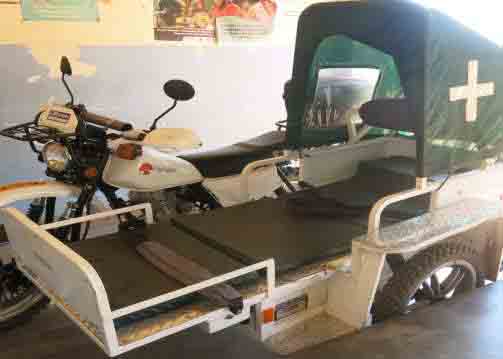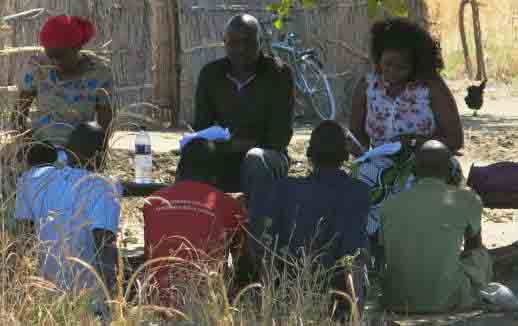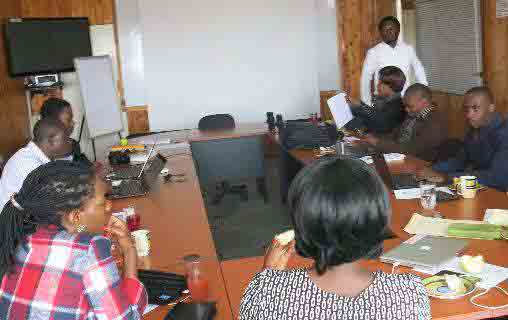Public Health, Health Systems and Services
Project: Evaluative Baseline Assessment for an Intervention to Improve Maternal and New-born Survival in High Intervention Districts in Malawi
Client: UNICEF Malawi
In 2017, E4C collaborated with Prime Health and Consulting Services (PHCS) and conducted a Evaluative Baseline Assessment for an Intervention to Improve Maternal and New-born Survival in High Intervention Districts in Malawi. The exercise included conducting quantitative data analysis across all three programmes and comparing with what has been achieved against milestone targets.
This program aimed at reducing barriers to the utilization of RMNH services; enhancing the quality of maternal neonatal and child health services in five districts of Malawi: Nkhata-Bay, Dedza, Mangochi, Blantyre and Thyolo. Maternal and newborn mortalities and morbidities among other factors are influenced by quality and availability of Reproductive Maternal and Newborn Health services; barriers to Reproductive Maternal and Newborn Health service; and poor care-seeking behaviours among communities.
Project: District Monitoring and Verification of MOH and CHAM- Service Level Agreements (SLA)
Client: Malawi Health Sector Programme Technical Assistance (MHSP-TA), Options Consultancy UK
MHSP-TA contracted E4C to provide technical advice and capacity development on service contract management to District teams and CHAM health facility management, as well as to monitor the quality of services delivered under these contracts (also known as Service Level Agreements – SLAs). The UK Department for International Development (DFID) has awarded Options Consultancy Services a four year contract to provide Technical Assistance to support successful implementation of Malawi’s Health Sector Strategic Plan (HSSP), which is known as Malawi Health Sector Programme Technical Assistance (MHSP-TA).
Project: Process Evaluation of SSDI-Malawi Programmes subcontracted as local research firm partner for DEV-Tech Systems Inc, USA.
Client: USAID Malawi
In 2016, E4C conducted a midterm evaluation for the USAID/SSDI Project in collaboration with DEVTECH Inc. USA. The SSDI project covered three integrated health intervention programmes SSDI Services, SSDI Communications and SSDI Systems. The exercise included conducting quantitative data analysis across all three programmes and comparing with what has been achieved against milestone targets.
The Support for Service Delivery Integration (SSDI) is USAID/Malawi’s flagship health activity to support the increased availability and quality of the Essential Health Package (EHP) services, reinforce health promotion and disease prevention among households, and strengthen elements of the health system to sustain effective EHP delivery throughout the 28 districts of Malawi. SSDI consisted of three interrelated sector activities: Services, Communications, and Systems.
Project: HPV vaccine coverage survey
Client: UNICEF, WHO Malawi and Ministry of Health
E4C conducted the HPV vaccine coverage survey is to generate necessary information on the coverage of the HPV vaccination programme among standard 4 girls after one year of implementation. The specific objectives of the survey were: to estimate the coverage for fully vaccinated standard eligible; estimate the coverage for partially vaccinated eligible girls (those receiving 1 or 2 doses) and describe the level of vaccine acceptability among parents/guardians of the eligible girls.
The Government of Malawi applied and received support from the Global Alliance for Vaccines and Immunization (GAVI) to implement an HPV vaccination demonstration project in the districts of Zomba and Rumphi. Implementation of this pilot project began in September 2013. . This is a primary prevention measure for cervical cancer and the vaccine is aimed at girls aged 9-13 years. In the class-based approach, girls in Standard 4 are being reached with the HPV vaccine. The overall coordination of this program is through the Non Communicable Disease section of the Clinical Services Department with support from other Ministry of Health Departments such as Reproductive Health Department and the Expanded Programme of Immunisation Section, as well as development partners including United Nation agencies.
“Real-time monitoring Child Mortality through Community Health Worker Reporting of Births and Deaths: Case of Community Health Surveillance Assistants in Malawi in Collaboration with Johns Hopkins University School for Public Health Bloomberg, Baltimore, MD, USA., 2012;
http://www.plosone.org/article/info:do1/10.1371/journal.pone.0088939
Journal of Tropical Medicine & International Health "Monitoring child survival in "real time" using routine health facility records: Results from Malawi" Amouzou A, Kachaka W, Banda W, Chimzimu M, 2012; doi:10.1111/tmi.12167; http://www.jhsph.edu/departments/international-health/centers-and-institutes/institute-for-international-programs/_documents/rapid_scaleup/PilotHSAsurveyBalakaMalawi.pdf
 Evidence For Change Solutions (E4C)
Evidence For Change Solutions (E4C) 






